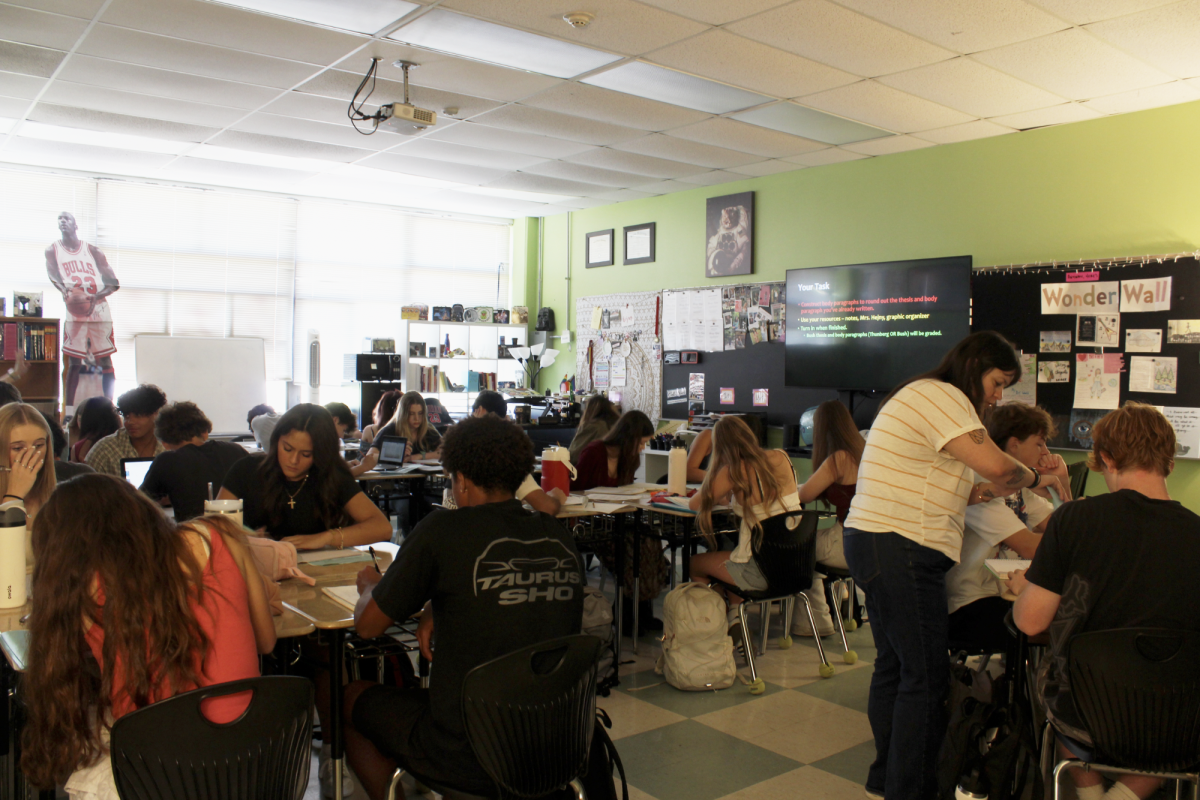Non-Christian students struggle with holidays during school
December 23, 2015
Christmas Break is right around the corner and all students and staff countdown to the two weeks of freedom from stress and school. However, some students do not celebrate Christian holidays like Christmas.
Their important celebrations occur at different times of the year, but they do not have the privilege of having time off to celebrate it like Christians have. Religions like Judaism and Islam, have many significant holidays that are yet to be recognized by public school systems, but students do not have the day off and are required to go to school and this is not a fair decision.
Students should be allowed to express religious faith within their learning environment. The majority of Americans consider themselves to be Christians. However, the other minor religious followers must learn and adapt to managing their schedule or school and work with religious beliefs.
No matter the religion, a person’s beliefs are often a large aspect of their life. Unfortunately, this often conflicts with school attendance. As important grades and education are, religion often overpowers it. But with religions that are not practiced as much as dominant ones, it then becomes a challenge to balance the two. Someone should not have to choose between two huge life aspects.
Public school s in New York have made changes to their systems. They cancel classes for the Jewish holidays, Yom Kippur and Rosh Hashanah, and Muslim holidays, Eid al-Adha and Eid al-Fitr. However, many other religions still seek recognition and appropriate time off.
It’s very important for minor religion’s holidays and important dates to be recognized by the majority of people because it respects and acknowledges the diversity within communities.
In many places around the country, a student may get permission to miss the school day. This then leaves the family to the decision of knowing whether to choose between the importance of education or religion.
One problem that would arise from allowing all religions to have official holidays is it would be difficult for schools to meet the criteria of 180 school days.
This would then lead to the potential idea that there should be no school holidays for religions because that could create equality for respect of varied belief systems. But religions are such a major aspect of many people’s lives, that this would be unfair to strip communities of these privileges.
Throughout a student’s education, they are told that the school’s staff may not talk about their opinions and perspective on religion. Yet, ever since elementary school, Christmas seems to be supported and sponsored through activities like present swapping and festive holiday music when December nears. Although there is nothing wrong with these actions, it is unfair and hypocritical to other smaller religions which are not discussed whatsoever.
One solution that is not too extreme to be accepted by school systems is if a student misses school for a holiday, that absence should be excused. Therefore, all religions are recognized while everyone meets school requirements. With this, students do not have choose between their education and religion.
However, Bowie already allows students excused absences for religion. This leads to the conflict that a student must attend 10% of their classes. With the acceptance of a religion, students must complete all school requirements successfully. Therefore, each student should be allowed a specific amount of days to focus on religion compared to going to school.







